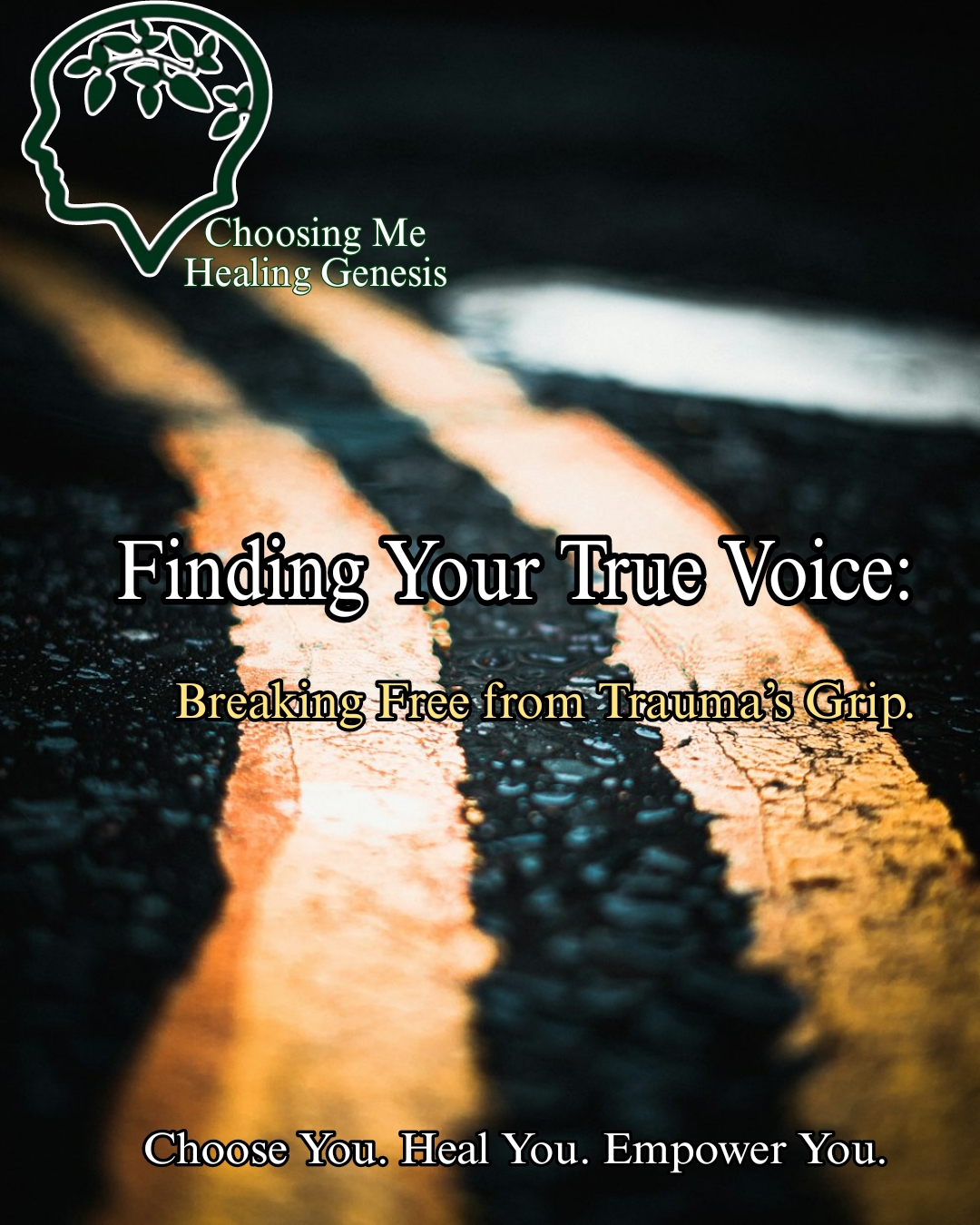Finding Your True Voice: Breaking Free from Trauma’s Grip
We’ve talked about how trauma can be that quiet voice in our lives, shaping who we are in ways we don’t always see. But what happens when you realize that voice isn’t truly yours? How do you find the strength to speak in your own voice, to live your own truth, when trauma has had such a strong hold on you?
This journey to finding your true voice isn’t easy. It’s messy, it’s painful, and it’s so deeply personal. But it’s also one of the most powerful things you can do for yourself.
Listening Beyond the Noise
The first step in finding your true voice is learning to listen beyond the noise of trauma. This isn’t about ignoring what you’ve been through—it’s about hearing what’s underneath it. Trauma often drowns out our own thoughts and feelings, making us doubt ourselves. To find your true voice, you have to start by being still, by quieting the chaos, and really listening to what’s inside you. This can be scary because it might be the first time you’ve truly heard yourself in a long time.
The Pain of Rediscovery
Rediscovering your voice is painful. It means facing the parts of you that trauma has silenced. It means feeling the emotions you’ve buried, the dreams you’ve forgotten, the parts of yourself that you’ve pushed away because they were too hard to deal with. But this pain is necessary. It’s the price you pay for getting back to who you really are.
Letting Go of the Old Story
Trauma often comes with a story—a narrative that tells you who you are, what you can’t do, and where your limits lie. Finding your true voice means letting go of that old story. It means realizing that you are more than what happened to you, more than the pain you’ve carried. This isn’t about pretending the past didn’t happen—it’s about refusing to let it define your future. Letting go is terrifying, but it’s also freeing.
Finding the Courage to Speak
Once you start to hear your true voice, the next step is finding the courage to use it. This means speaking up for yourself, even when it feels risky. It means setting boundaries, saying no when you need to, and choosing to live in a way that honors who you really are. This can feel like stepping into the unknown, but it’s where real growth happens.
Embracing Your Whole Self
Your true voice isn’t just the part of you that’s strong or brave—it’s also the part that’s scared, the part that’s vulnerable, the part that still hurts. Embracing your true voice means accepting all of you, not just the parts that are easy to love. This is where real healing begins—when you can look at yourself, with all your scars, and still see someone worthy of love, respect, and a beautiful life.
Writing a New Story
Finally, finding your true voice means writing a new story for yourself. A story where you are the hero, where you overcome, where you grow. This story won’t erase the past, but it will give you a future that’s yours to shape. It’s a story of resilience, of strength, and of hope.


0 Comments